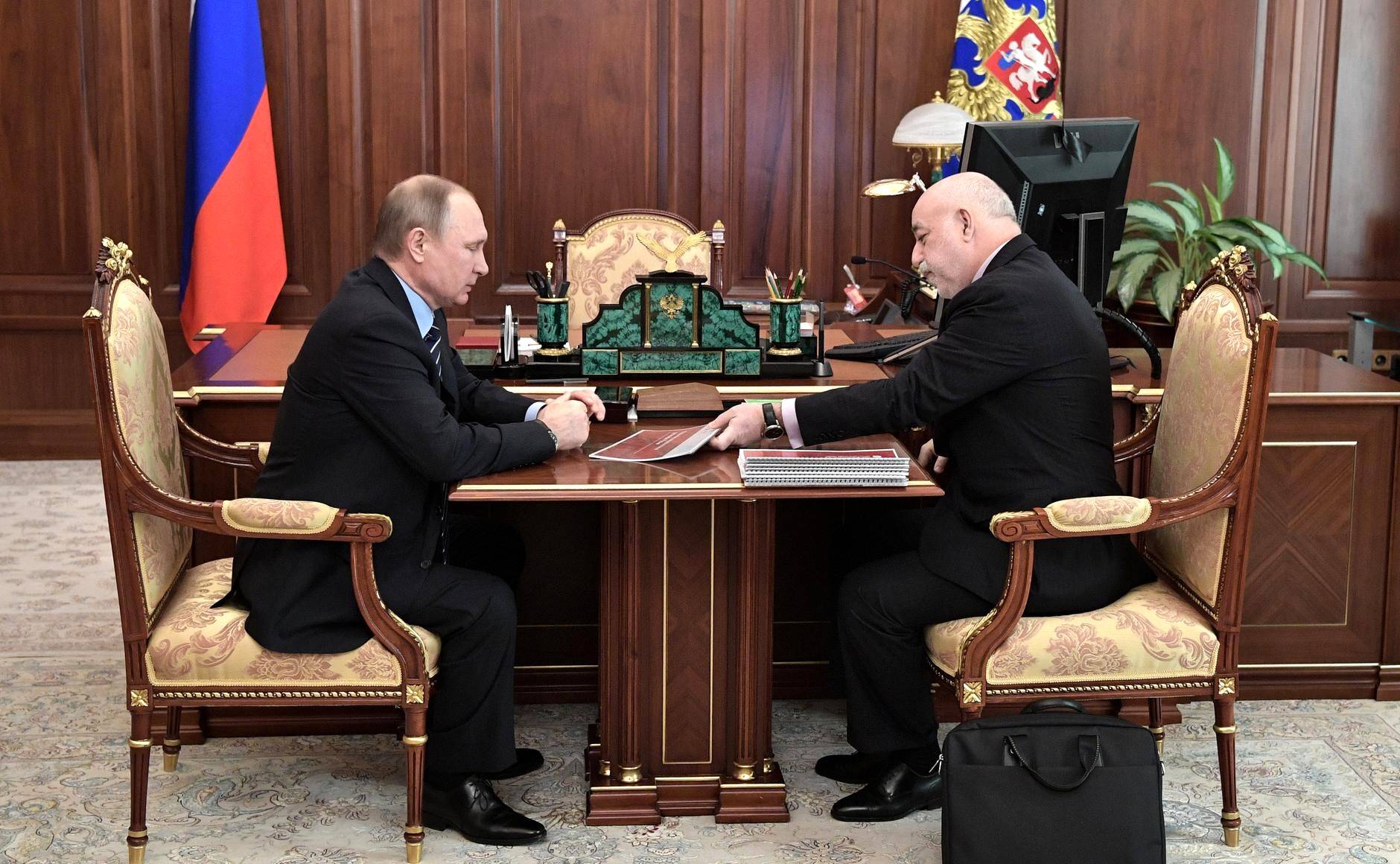
Ukraine urges Switzerland to clamp down on Russian money

An advisor to Ukrainian President Volodymyr Zelensky says the Swiss should be more proactive in looking for Russian funds. But according to a legal expert, current regulations do not allow authorities or banks to do more active searches beyond what’s in their current registers.
Zelensky’s advisor, Alexander Rodnyansky, said that for Ukraine, it’s “vital” that Switzerland contributes to international pressure on Russia so the war will end. The Alpine country can make a big impact when it comes to sanctions imposed on wealthy Russians, Rodnyansky said in an interviewExternal link with the newspaper Sonntagsblick.
“We all know there is a huge amount of money [belonging to] the Russian elite sitting in Swiss banks,” he said. The reporting obligation currently in force is not enough, he added – Switzerland, like other countries, must actively look for these assets.
To date, the small European state has blocked funds totalling CHF5.75 billion ($6.2 billion). But this figure does not match estimates reported by various sources of the total amount held by Russians in Switzerland, Erwin Bollinger of the State Secretariat for Economic Affairs (SECO) told the media on Thursday. Not all persons on the sanctions list have assets in Switzerland, and not every Russian who owns assets in Switzerland is on the sanctions list, he explained.

More
Meet the oligarchs: Switzerland’s awkward guests
Under Swiss regulations, financial institutions are obliged to report assets held by Russians amounting to more than CHF100,000. These funds won’t be frozen if the account holders are not on the sanctions list, Bollinger added. Cantonal authorities, including the tax offices, also must report assets of persons or institutions on the sanctions list.
Rodnyansky, however, argued that many wealthy Russians continue to operate in secrecy, which is why Switzerland must intervene more vigorously.
‘Window dressing’
Politicians of different stripes also believe the authorities should be more proactive. The Social Democrats have called for the creation of a taskforce to investigate where oligarchs have hidden their money in Swiss institutions. Top officials from the Centre party and the centre-right Radical Liberals want the government to examine financial records and modify regulations on sanctions, media reports say.
Under current rules, banking institutions and cantonal authorities can only report what’s in their registers – looking into the origins of assets or connections between individuals is not permitted, according to legal expert Peter Kunz.
“An active background investigation would be untenable under the rule of law,” Kunz toldExternal link the SonntagsZeitung, adding that setting up a taskforce would be mere “window dressing” as it would lack police powers. He also believes authorities lack the capacity and know-how to carry out such searches.
When the Ukraine war began, Switzerland was reluctant to impose sanctions against Russia in line with a decision of the European Union – of which it is not a member – saying this would impair its neutrality. It changed course following both domestic and international pressure.
In response to the economic sanctions, Russia included Switzerland in a list of around 50 countries that have committed “unfriendly actions” against the country, its companies and citizens. On Sunday the NZZ am Sonntag newspaper reported that Russian secret service agents confiscated watches worth millions of francs from a local subsidiary of the Swiss manufacturer Audemars Piguet in Moscow earlier this week.
According to a confidential Swiss foreign ministry memo seen by the newspaper, Russian authorities cited customs infractions for the move. But the foreign ministry believes it was “very probably an arbitrary repressive measure in reaction to the sanctions”.

In compliance with the JTI standards
More: SWI swissinfo.ch certified by the Journalism Trust Initiative






























You can find an overview of ongoing debates with our journalists here . Please join us!
If you want to start a conversation about a topic raised in this article or want to report factual errors, email us at english@swissinfo.ch.